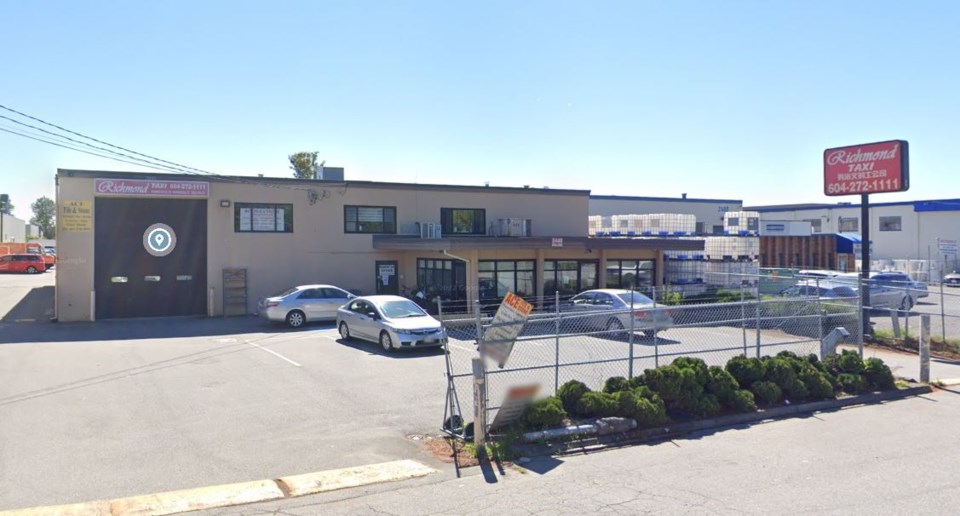A passenger who got ejected from her wheelchair when her taxi made an "abrupt and hard brake" will get more than $400,000 in compensation.
In her B.C. Supreme Court lawsuit against Richmond Cabs Ltd. and one of its drivers, Gurdeep Singh Sohi, Jane Stillwell claimed the two were negligent and liable for her injuries, which happened when Sohi hard braked to avoid colliding with a car.
The incident happened on Railway Avenue in Richmond, near the Williams Road intersection, and the car ahead of Sohi had braked to avoid hitting a raccoon.
Stillwell was ejected from the wheelchair and onto the floor of the taxi between her wheelchair and the bench seat in front of her, resulting in injuries including whiplash, bruising, lacerations, a broken nose and multiple fractures in her lower body.
She was hospitalized for two weeks and experienced a loss of muscle strength and function.
"This was particularly devastating for Ms. Stillwell, as the maintenance of muscle strength and function has been a lifelong fight against the effects of muscular dystrophy," reads the B.C. Supreme Court decision by Justice Francesca Marzari.
Marzari added it was "uncontroversial" Stillwell's injuries accelerated her loss of strength and function "beyond the ordinary course of her pre-existing condition."
Stillwell argued Richmond Cabs and Sohi were negligent in not affixing her three-point wheelchair seatbelt that would have secured her body in place and he should have at least asked if she needed help doing so.
Richmond Cabs and Sohi denied he breached any standard of care regarding his driving and said the law has not recognized a standard of care to assist an adult with fastening their seatbelt.
They added Stillwell contributed to the incident by failing to secure a belt attached to her wheelchair.
The trial took place over nine days and in a judgment issued on Dec. 27, Marzari found Richmond Cabs and Sohi to be liable for Stillwell's losses.
Taxi was speeding, too close to vehicle ahead
During the trial, the parties disagreed on the accuracy of Stillwell's evidence about the events leading up to the accident.
Richmond Cabs and Sohi denied he was consistently exceeding the speed limit and following a white vehicle ahead too closely, but Marzari sided with Stillwell.
She found Sohi was "more likely than not" consistently going faster than the 50 kilometre per hour speed limit and was "travelling close enough that a very hard braking manoeuvre was required to avoid colliding with that vehicle when it came to a stop."
Marzari noted it was uncontroversial that Sohi did not affix the wheelchair seatbelt and found Stillwell would not have been able to do so herself due to her position. She added Stillwell did not latch the belt on her wheelchair like she usually did.
She found Sohi had breached the standard of care owed to Stillwell by not securing the three-point wheelchair seatbelt, which is included in the training materials for wheelchair taxi drivers and supported by expert evidence.
Evidence also "conclusively" confirmed securing the belt on Stillwell's wheelchair would have been inadequate to meet the standard of care because the belt is not intended to replace or act as a seatbelt in a car, Marzari wrote.
In terms of Sohi's driving, Marzari found his actions gave rise to "an objectively foreseeable risk of injury" to his passenger.
"This is particularly true in these circumstances, where Mr. Sohi knew that passengers with disabilities require more care to be taken, and that he knew that his passenger in this case was not properly restrained," wrote Marzari.
She added Sohi was required to drive in a way to avoid having to come to unnecessarily abrupt and hard stops.
Although Richmond Cabs and Sohi argued Stillwell contributed to her injuries by failing to secure the belt on her wheelchair and to ask for help with the seatbelt, Marzari found they failed to show any case law that would prove it was Stillwell's duty to do so.
Marzari also found Stillwell experienced a "significant step down" in function as a result of her injuries from the accident and concluded Stillwell would have been able to retain a level of function above her current post-accident level for around 10 years.
In compensation for Stillwell's "dramatic" loss of quality of life, especially her loss of independence "during a time in her life that was particularly valuable to her," Marzari awarded Stillwell $225,000 in non-pecuniary damages.
Stillwell will also get $171,470 for her future care and $10,423 in special damages, making the total $406,893.
Got an opinion on this story or any others in Richmond? Send us a letter or email your thoughts or story tips to [email protected].



